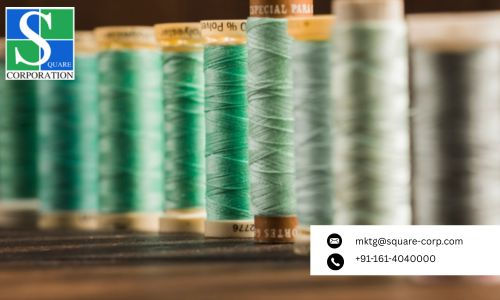Why Recycled Yarn Is the Future of Sustainable Fashion
- squarecorpyarnfabr
- Sep 13, 2025
- 3 min read

Could yesterday’s discarded textiles become tomorrow’s runway statement? The fashion industry is betting on it. Around the world, designers and brands are embracing recycled yarn as a key ingredient in building a greener, smarter wardrobe. Partnering with a trusted Recycled yarn manufacturer is quickly becoming a must for any label serious about sustainability and style.
Why Recycled Yarn Is More Than a Trend
Global textile waste is staggering—billions of pounds of clothing end up in landfills each year. Recycled yarn transforms old garments, factory scraps, and even plastic bottles into new fibers, drastically reducing landfill overflow and cutting down on energy-heavy virgin fiber production. According to the U.S. Environmental Protection Agency (EPA), textile recycling saves significant water and energy compared to traditional manufacturing. It’s not just an eco-choice; it’s an economic one too, as brands reduce raw material costs while boosting their green credentials.
Key Advantages of Recycled Yarn
Lower Carbon Footprint: Producing recycled fibers uses far less water and energy than creating virgin cotton or polyester.
Closed-Loop Systems: Old garments get a second life, creating a circular economy that keeps materials in play longer.
Creative Freedom: Designers experiment with unique textures and color blends only possible with reclaimed fibers.
Behind the Spool: How It’s Made
The process begins with collecting textile waste or post-consumer plastics. These materials are sorted, cleaned, shredded, and spun into new yarns. Modern technology ensures durability and softness on par with conventional fibers. A reputable Organic Cotton Fabric Manufacturers in India often pair recycled yarn with certified organic cotton, creating fabrics that satisfy both environmental and comfort standards.
Real-World Inspiration
Luxury brands are weaving recycled yarn into high-fashion pieces, while activewear companies rely on it for moisture-wicking performance fabrics. In India, a spinning mill in punjab might produce yarns from pre-consumer cotton waste, turning regional know-how into global fashion solutions.
Tips for Brands Considering Recycled Yarn
Vet Your Supply Chain: Choose mills with third-party sustainability certifications.
Mix and Match: Blend recycled fibers with organic or bamboo fibers for unique textures.
Educate Your Audience: Highlight the story behind each garment—consumers love transparency.
Challenges to Watch
While promising, recycled yarn isn’t a silver bullet. Color consistency can vary, and some blends may not suit every garment type. Still, ongoing research and better dyeing methods are closing these gaps quickly.
Frequently Asked Questions
What is recycled yarn made from?
It’s produced from textile waste, old garments, factory cuttings, or post-consumer plastics like PET bottles.
Is recycled yarn as strong as virgin fibers?
Yes. Modern processing delivers yarns with durability comparable to traditional fibers, making them suitable for apparel and home textiles.
Does recycled yarn reduce water usage?
Absolutely. Studies show it requires significantly less water than cultivating new cotton or producing virgin polyester.
Can small fashion labels source recycled yarn easily?
Many mills now cater to small and medium designers, offering lower minimum order quantities and custom blends.
Final Thoughts
Recycled yarn represents a quiet revolution in sustainable fashion—one that blends style, innovation, and responsibility. From boutique designers to global brands, adopting this material means aligning with a future where fashion treads lightly on the planet while keeping creativity front and center.
Blog Development Credits:
This article was envisioned by Soma Maiti, researched and written using advanced AI-driven tools like ChatGPT, Google Gemini, and Copilot, and polished for SEO by Digital Piloto Private Limited.




Comments